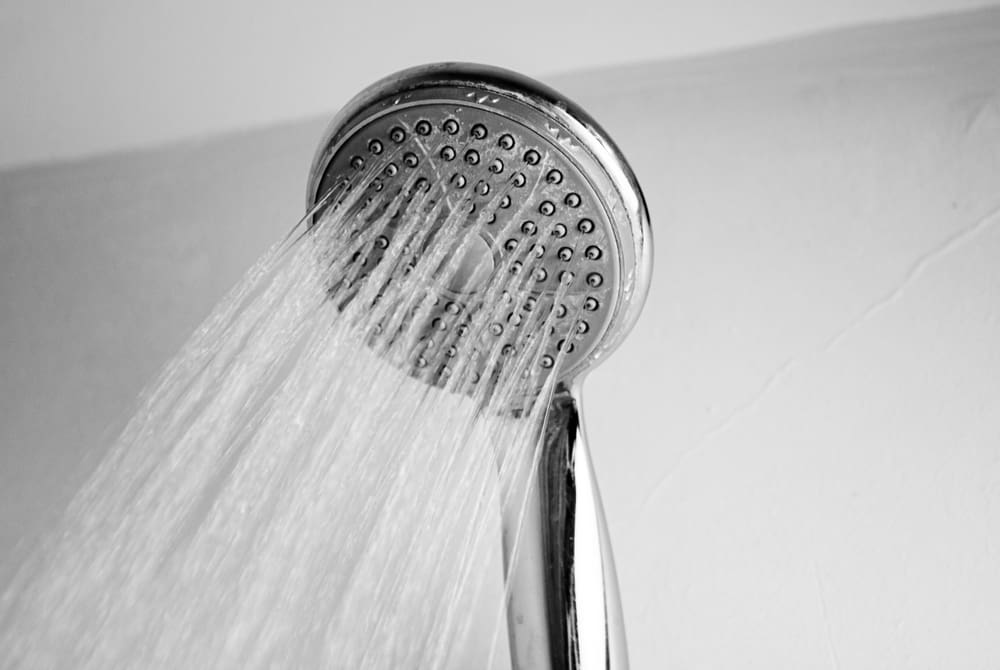You may have a lot of questions about your home’s water pressure—at Anderson Plumbing [1], Heating, and Air, we have all the answers you need. In this blog we’ll go over how to measure water pressure in your home, the causes of low and high water pressure, and how to adjust your water pressure settings. It can be uncomfortable and a major inconvenience to have water pressure issues, so it’s important to understand these signs and know who to call should you come across any yourself.

How Do I Measure Water Pressure in My Home?
Measuring your home’s water pressure becomes especially important when you’re searching for answers to, “Why do I have low water pressure?”
You can measure your home’s water pressure with a pressure gauge, an inexpensive tool you can find at your nearest home improvement store. When reading your water pressure, you want to look for how forceful the water is in your home, which is measured in pounds per square inch, or PSI.
What is the Ideal Water Pressure For My Home?
Although people have different preferences when it comes to water pressure, it’s important to keep your home’s water pressure within an acceptable range. For most homes in San Diego, the ideal water pressure setting should be between 40 to 80 PSI. If you’re in doubt, we recommend setting your water pressure to 60 PSI for a balanced and strong enough water flow without causing damage to other appliances in your home.
Common Causes for Low Water Pressure in Homes
When your home has low water pressure, you may notice that your water appliances are taking longer than usual. For example, your bathtub may take a long time to fill, or your shower is putting out little to no water. Although it may make sense to repair a singular plumbing fixture that is giving water pressure issues, sometimes your whole house experiences low water pressure, making appliances such as your dishwasher and washing machine take longer than usual as well. Some causes of low water pressure include:
Leaking Pipes [2]
Your plumbing system may have leaks in the pipes—you can check for leaks by first turning off the water to your house, and then checking the water meter after a couple of hours to see if any water was recorded. Alternatively, if you’re worried about leaking pipes and need assistance, call San Diego’s top-tier plumbing professionals for a thorough pipe inspection.
Mineral Deposits
Over time, galvanized iron pipes can accumulate debris, sediment, and minerals that cause low water pressure in your home. This buildup will block the water running through your pipes, and will need to be cleaned for your water pressure to return to normal—Anderson Plumbing can help!
Faulty Pressure Regulator
Your residential water pressure system has a component called a pressure regulator that is normally preset to 45 to 60 pounds per square inch (PSI). Over time, frequent use will cause the pressure regulator to wear out and will need to be replaced.
Open Water Meter Valve
Most homes have two water meter valves that can alter water pressure in your home if they are slightly askew. Check your water meter box and your home valve to make sure they are sealed and turned to the “on” position—if you need assistance with this or other water pressure issues, don’t hesitate to call Anderson Plumbing.
Why Is My Water Pressure So High?
Most homeowners only pay attention to their water pressure when it’s low—but too much of a “good” thing can also be harmful to your home’s systems. High water pressure can damage your water softener, water heater, faucets, and even cause blowouts in the flex lines and hoses that hook up to your washing machine and appliances. The most common reason why San Diego homes get high water pressure is due to a faulty pressure regulator that needs to be adjusted or replaced.
How To Adjust High & Low Water Pressure
Water Pressure Is Too High
- Install a new pressure regulator with a maximum flow of 75 PSI.
Water Pressure Is Too Low
- Inspect your pressure regulator for proper functioning.
- Call your municipal water supply company to see if there is a low water flow to your home.
- If all else fails, consider installing a pressure booster.
Water Pressure Regulator Installation in San Diego
Sometimes called pressure-reducing valves, water pressure regulators [3] are devices that automatically reduce the high incoming water pressure from the city mains to a lower, more practical water pressure for use in your home. Reducing the water pressure in a home puts less stress on the plumbing system, allows appliances to operate safely, and conserves water [4]. Anderson Heating, Plumbing & Air offers expert water pressure regulator installations and repairs in San Diego.
Call Anderson Plumbing in San Diego for Water Pressure Repairs
If you live in San Diego and are experiencing high or low water pressure in your home, call Anderson Plumbing, Heating, and Air—our plumbing professionals will be able to assess and repair any water pressure problems you may have. Call Anderson Plumbing today [5].